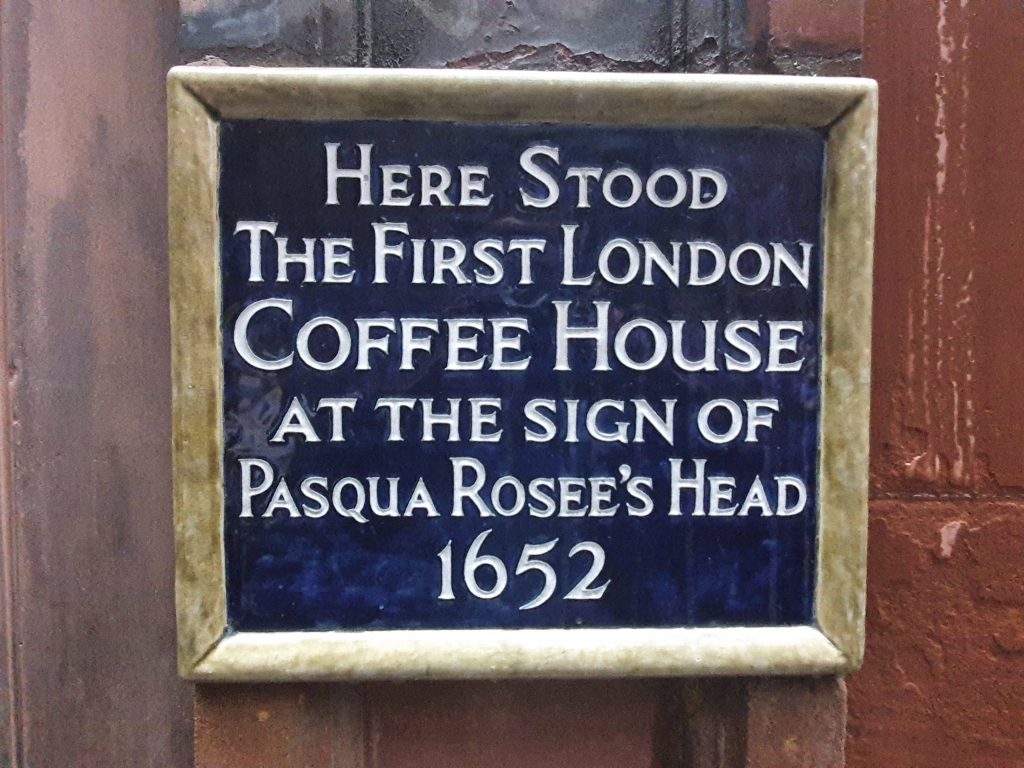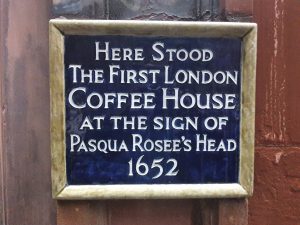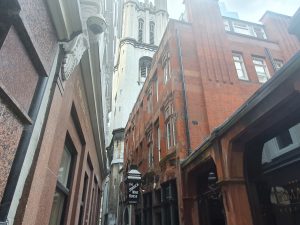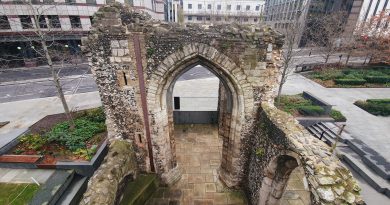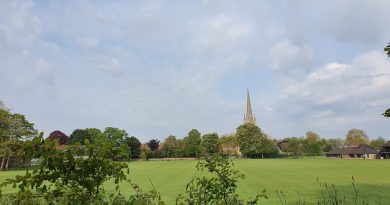London – City of London – First London Coffee House
From where it all began for coffee shops in London, what is now the Jamaica Wine House on St Michael’s Alley in the Cornhill area. This first coffee house was opened in 1652 by Pasqua Rosée who had connections with the Turkish and Greek communities. He built himself a little shop, although I can imagine that it wasn’t exactly Pret (it was probably more akin to something that I’d create with a few bits of wood and a civil engineer friend to do some sawing and construction), and this new drink of coffee seemed to catch on. He put a sign up out the front with his own image on it, similar to what Tim Martin did with his now closed pub on Whitehall. He had some important customers (Rosée I mean, not Tim Martin), not least Samuel Pepys who wrote about his visit in 1660.
It had quite a nice little location by St. Michael’s Cornhill Church, but this whole area was badly affected (by badly affected, I mean it burned down) by the 1666 Great Fire of London. The church is still in situ, although it was heavily rebuilt following the Great Fire, with the shop also being rebuilt on pretty much the same site it had been standing on. Rosée wasn’t a freeman of the city and I can imagine the problems that this caused him, so apparently there was some partnership arrangement created to get around this problem to ensure that he could trade. No-one is entirely sure what the premises were called, but it’s thought that for a while they were known as the Turk’s Head. Rosée did well from his enterprise, but he decided to go an innovate in Paris instead, opening up that city’s first coffee shop in 1672.
The building on the site today is the Jamaica Wine House, a Victorian building which was completed in 1869. The pub might have switched from coffee to beer and then more to wine (next step craft beer…..), but there’s still a nineteenth century cooker in place from where the coffee beans were roasted.
I still like how exotic this coffee shop must have been when it opened, probably as exciting as an innovative craft beer bar being announced. It was a place to be seen and also to discuss financial arrangements, which is how the large insurance, banks and financial institutions evolved. They were good places for traders to meet to discuss their purchase and sales, usually also quite energetic (loud) environments. Usually there was no alcohol served in these coffee shops in the early days and women were excluded from attending such decadent places.
I can only imagine the sort of gossip that was discussed at this coffee shop from 1652, but I think that I’d like to have listened to it. King Charles I had been executed just three years before the coffee shop opened, so political talk would have been inevitable, and I’m sure care was taken to avoid upsetting the wrong people. Coffee shops and pubs later often welcomed one political group over another, which would be an interesting set-up for Pret, they could have shops for Starmer supporters and maybe the odd one or two for supporters of Grant Shapps or something. Anyway, I digress.

